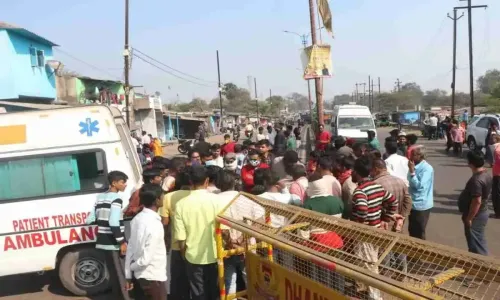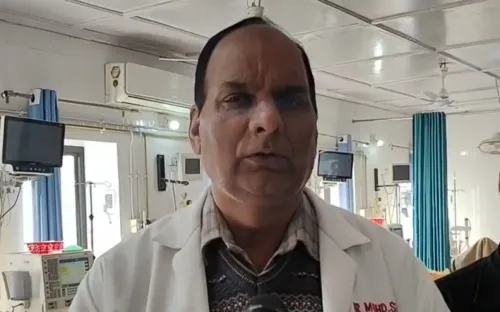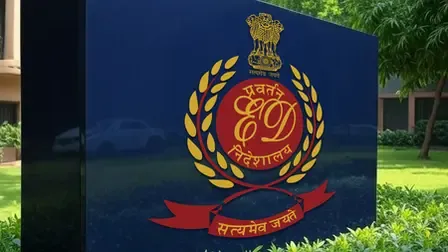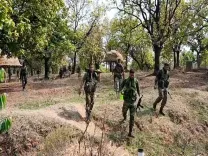Did a High-Risk Contact Patient Just Die from Nipah in Kerala?
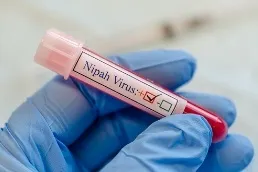
Synopsis
Key Takeaways
- A woman has died after being a high-risk contact of a Nipah-positive patient.
- The health department has advised postponing funerals until test results are confirmed.
- Kerala has seen multiple Nipah outbreaks since 2018, with 17 fatalities.
- Health authorities are on high alert, monitoring over 480 contacts.
- Containment zones have been established to curb the virus's spread.
Malappuram, July 9 (NationPress) A woman receiving care at a government hospital close to this area, recognized as a high-risk contact of a Nipah-positive individual who passed away last month, succumbed on Wednesday.
The deceased was placed in the identical hospital ward as the previous Nipah victim.
In light of her passing, the health department has instructed her family to postpone the funeral until the conclusive test results from the National Institute of Virology in Pune are available.
This situation arises amidst the ongoing treatment of another Nipah-positive patient at Kozhikode Medical College and Hospital, who is currently in critical condition.
The Nipah virus, first detected in Malaysia in 1999, has led to numerous devastating outbreaks across South and Southeast Asia. Kerala has been the most impacted state in India, reporting six outbreaks since 2018, leading to the loss of 17 lives since the initial outbreak in Perambra, Kozhikode, in 2018.
At present, 482 individuals are on the Nipah contact list in Kerala, which includes 192 in Malappuram, 114 in Kozhikode, and 176 in Palakkad. Health officials in these three districts are on high alert.
In Palakkad, where the critically ill patient resides, a three-kilometer radius around their home has been categorized as a containment zone. Field surveillance is actively being conducted, with officials gathering retrospective data from the last six months. Veterinary teams are also inspecting the surroundings.
The Nipah virus (NiV) is a highly lethal zoonotic pathogen that spreads from animals to humans. It can lead to acute encephalitis, severe respiratory issues, and, in numerous cases, death.
Investigations have confirmed that fruit bats, known colloquially as flying foxes, are the probable source of the virus. Nipah transmits through direct contact with infected animals (such as pigs), ingestion of fruits or palm sap tainted by fruit bats, and from person to person via contact with bodily fluids or contaminated surfaces.



